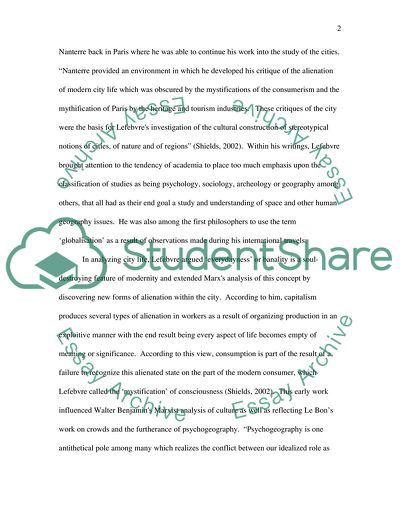Cite this document
(“Geography Discuss how the writings of Henri Lefebvre have influenced Essay”, n.d.)
Geography Discuss how the writings of Henri Lefebvre have influenced Essay. Retrieved from https://studentshare.org/miscellaneous/1535792-geography-discuss-how-the-writings-of-henri-lefebvre-have-influenced-geographers-understaning-of-the-modern-city-which-has-been-persistently-shped-by-the-spaces
Geography Discuss how the writings of Henri Lefebvre have influenced Essay. Retrieved from https://studentshare.org/miscellaneous/1535792-geography-discuss-how-the-writings-of-henri-lefebvre-have-influenced-geographers-understaning-of-the-modern-city-which-has-been-persistently-shped-by-the-spaces
(Geography Discuss How the Writings of Henri Lefebvre Have Influenced Essay)
Geography Discuss How the Writings of Henri Lefebvre Have Influenced Essay. https://studentshare.org/miscellaneous/1535792-geography-discuss-how-the-writings-of-henri-lefebvre-have-influenced-geographers-understaning-of-the-modern-city-which-has-been-persistently-shped-by-the-spaces.
Geography Discuss How the Writings of Henri Lefebvre Have Influenced Essay. https://studentshare.org/miscellaneous/1535792-geography-discuss-how-the-writings-of-henri-lefebvre-have-influenced-geographers-understaning-of-the-modern-city-which-has-been-persistently-shped-by-the-spaces.
“Geography Discuss How the Writings of Henri Lefebvre Have Influenced Essay”, n.d. https://studentshare.org/miscellaneous/1535792-geography-discuss-how-the-writings-of-henri-lefebvre-have-influenced-geographers-understaning-of-the-modern-city-which-has-been-persistently-shped-by-the-spaces.


